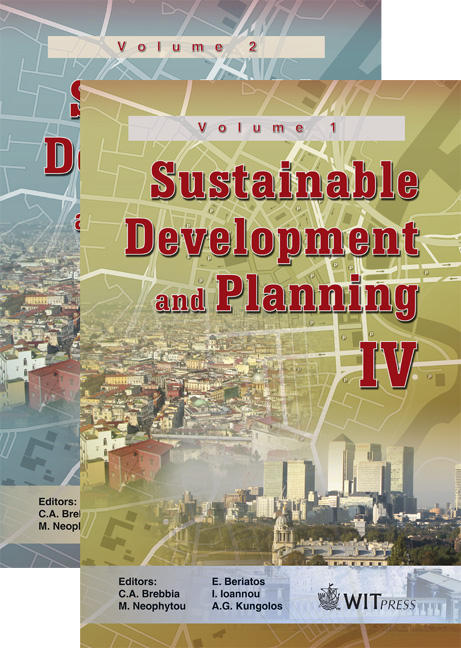Renewable Communities: Sustainable Energy Transition In Leuth
Price
Free (open access)
Transaction
Volume
120
Pages
11
Page Range
13 - 23
Published
2009
Size
851 kb
Paper DOI
10.2495/SDP090021
Copyright
WIT Press
Author(s)
N. Georgallis, R. Rovers & W. Timmermans
Abstract
It is widely recognized that the use of fossil fuels causes environmental and geopolitical problems. It is essential that we turn to sustainable and regional ways of producing energy. Both producers and consumers are directed towards renewable energy. Traditionally, the strategy of Trias Energetica is used when sustainable energy becomes an integrated part of urban planning. Trias Energetica promotes three main concepts of sustainable energy production: to reduce use, use renewables and be efficient with the remaining resources. In the research area of Leuth, near the city of Nijmegen in the Netherlands, the Urban Harvest strategy has been introduced. In this strategy all available renewable energy sources are harvested. The outcome of the Leuth research is that the community applying the Urban Harvest strategy is theoretically easily able to fulfil its energy needs. The results are used to discuss Trias Energetica. Keywords: renewable communities, trias energetica, urban harvest, renewable energy, biomass, wind energy, solar energy, energy from the road. 1 Introduction 1.1 Trias energetica After Charles de Montesquieu and his famous \“Trias Politica” in 1752, the issue of sustainable energy supply was introduced by Lysen in 1996 under the name of \“Trias Energica” [15]. At that point the three step strategy was structured as follows: 1. A continuing improvement of energy efficiency 2. A greater use of sustainable energy sources 3. A cleaner use of the remaining fossil fuels
Keywords
renewable communities, trias energetica, urban harvest, renewable energy, biomass, wind energy, solar energy, energy from the road.





